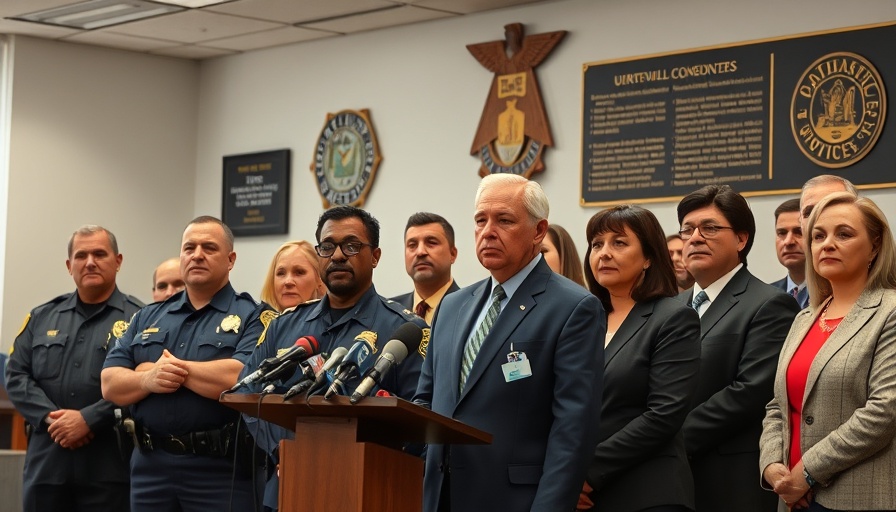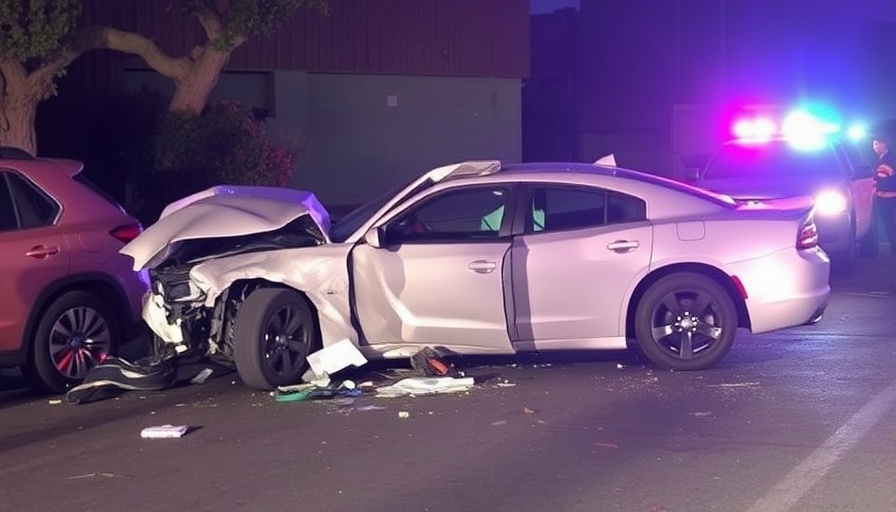
A Warning to Protesters: A Bold Statement from Florida's Sheriff
Brevard County Sheriff Wayne Ivey made a shocking announcement during a press conference in which he explicitly stated the consequences that protesters could face if they engage in illegal activities during the upcoming "No Kings" protests. His comments, while ostensibly aimed at safeguarding public order, raise significant questions about the boundaries of law enforcement and the treatment of dissent in America.
What Are the 'No Kings' Protests?
The "No Kings" protests are scheduled for June 14, coinciding with a military parade in Washington, D.C., marking the 250th anniversary of the U.S. Army and President Donald Trump's birthday. This movement has emerged from various social justice movements advocating for equality and addressing issues of systemic injustice. The potential for large gatherings of protesters has prompted heightened security measures from law enforcement, particularly in Florida.
Reactions and Community Concerns
While many argue that peaceful protests are a fundamental aspect of democracy, Sheriff Ivey's heavy-handed rhetoric—alerting the public to potential lethal force—has incited fear among activists. During the press conference, he stated, "We will kill you graveyard dead," if protesters break the law. This stark warning appears to cast a shadow on the community's right to peacefully gather and express dissent.
Historical Context: Protests and Law Enforcement
Historically, protests in the United States have met challenges from law enforcement seeking to preserve order. For instance, the Black Lives Matter protests in 2020 saw similar warnings from officials in some states as tensions escalated between demonstrators and police forces. The rise in aggressive police responses raises concerns about the balance between ensuring public safety and upholding citizens' rights to free expression.
Current Events: The Implications of Ivey's Remarks
The sheriff’s statements come at a time when tensions between law enforcement and the community are already heightened due to various incidents across the country. Activists and civil rights organizations have criticized the sheriff's stance for its potentially violent implications. It reflects an increasing divide in how law enforcement perceives protests versus community expectations of police behavior—especially in regions marked by political unease.
Future Predictions: Impact on Activism
If law enforcement continues on this aggressive trajectory, there may be an observable chilling effect on future protests. Many activists might reconsider whether to engage in public demonstrations, fearing for their safety and legal repercussions. This could stifle important discussions about social issues while possibly fueling further division between citizens and law enforcement.
Taking Action: Fostering Peaceful Demonstrations
It's crucial for community members to understand their rights when protesting, as well as the expectations set forth by law enforcement. Organizing peaceful demonstrations that adhere to local laws, fostering dialogue with law enforcement before events, and emphasizing community engagement through discussions on civil rights play significant roles in mitigating potential conflicts.
Final Thoughts: The Need for Dialogue
In light of Sheriff Ivey's alarming comments, open dialogue between law enforcement and citizens is more necessary than ever. We must encourage platforms for discussion that prioritize safety and respect for the rights of individuals. Understanding the reasons behind the protests and responding with compassion rather than aggression may lead to a healthier community environment and a better society overall.
Community members are encouraged to take an active stand in ensuring their voices are heard without fear of violence or intimidation. Engaging in discussions, attending community forums, and seeking peaceful resolutions can foster understanding and justice for all.
 Add Row
Add Row  Add
Add 



Write A Comment